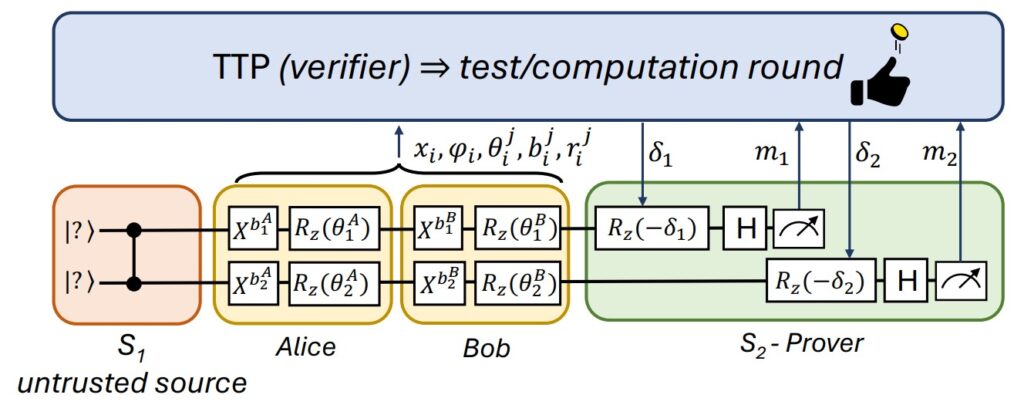The exploitation of certification tools by end users represents a fundamentalaspect of the development of quantum technologies as the hardware scales up
beyond the regime of classical simulatability. Certifying quantum networks
becomes even more crucial when the privacy of their users is exposed to
malicious quantum nodes or servers as in the case of multi-client distributed
blind quantum computing, where several clients delegate a joint private
computation to remote quantum servers, e.g. federated quantum machine learning.
In such protocols, security must be provided not only by keeping data hidden
but also by verifying that the server is correctly performing the requested
computation while minimizing the hardware assumptions on the employed devices.
Notably, standard verification techniques fail in scenarios where the clients
receive quantum states from untrusted sources such as, for example, in a
recently demonstrated linear quantum network performing multi-client blind
quantum computation. However, recent theoretical results provide techniques to
verify blind quantum computations even in the case of untrusted state
preparation. Equipped with such theoretical tools, in this work, we provide the
first experimental implementation of a two-client verifiable blind quantum
computing protocol in a distributed architecture. The obtained results
represent novel perspectives for the verification of multi-tenant distributed
quantum computation in large-scale networks.


